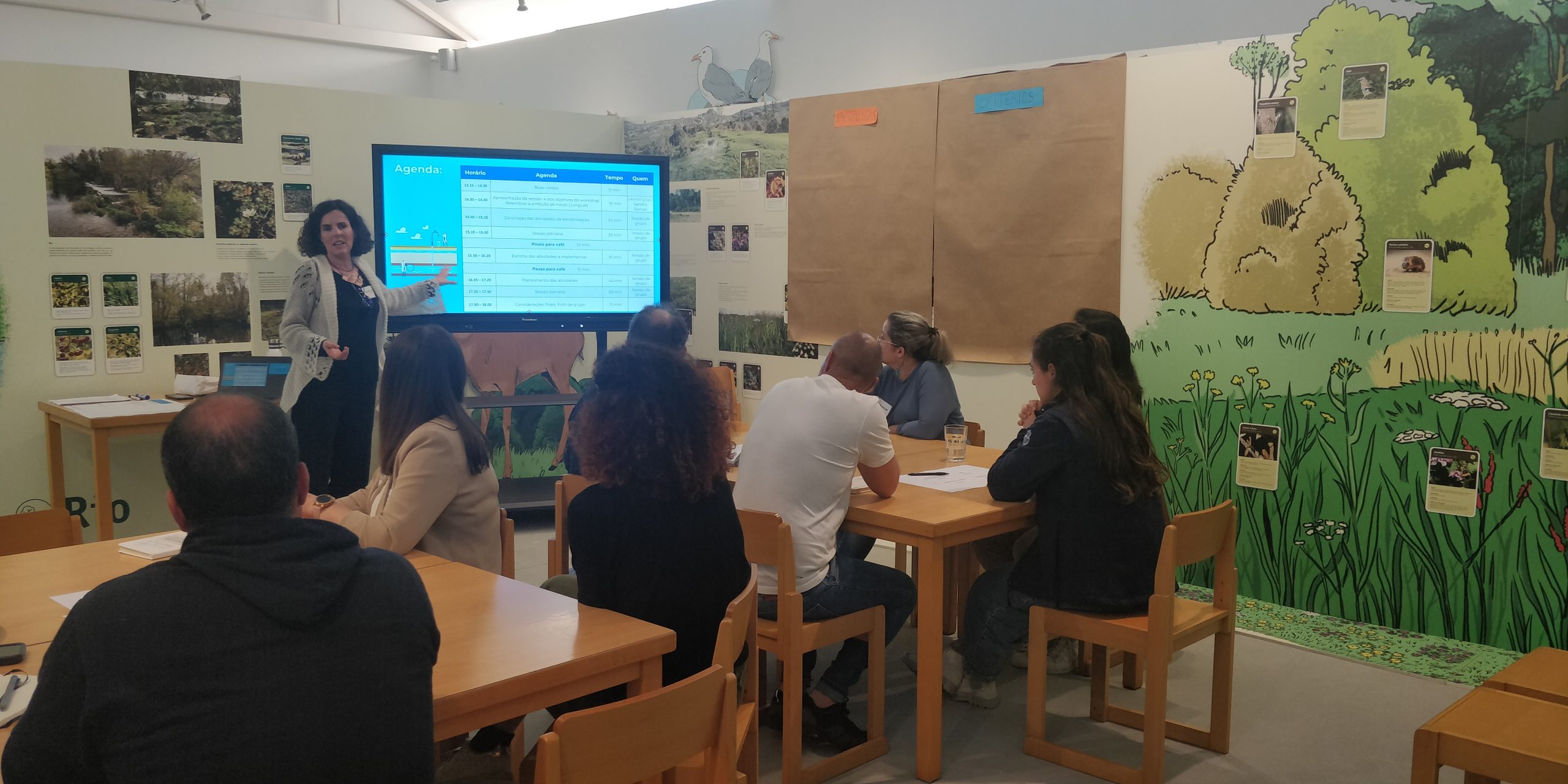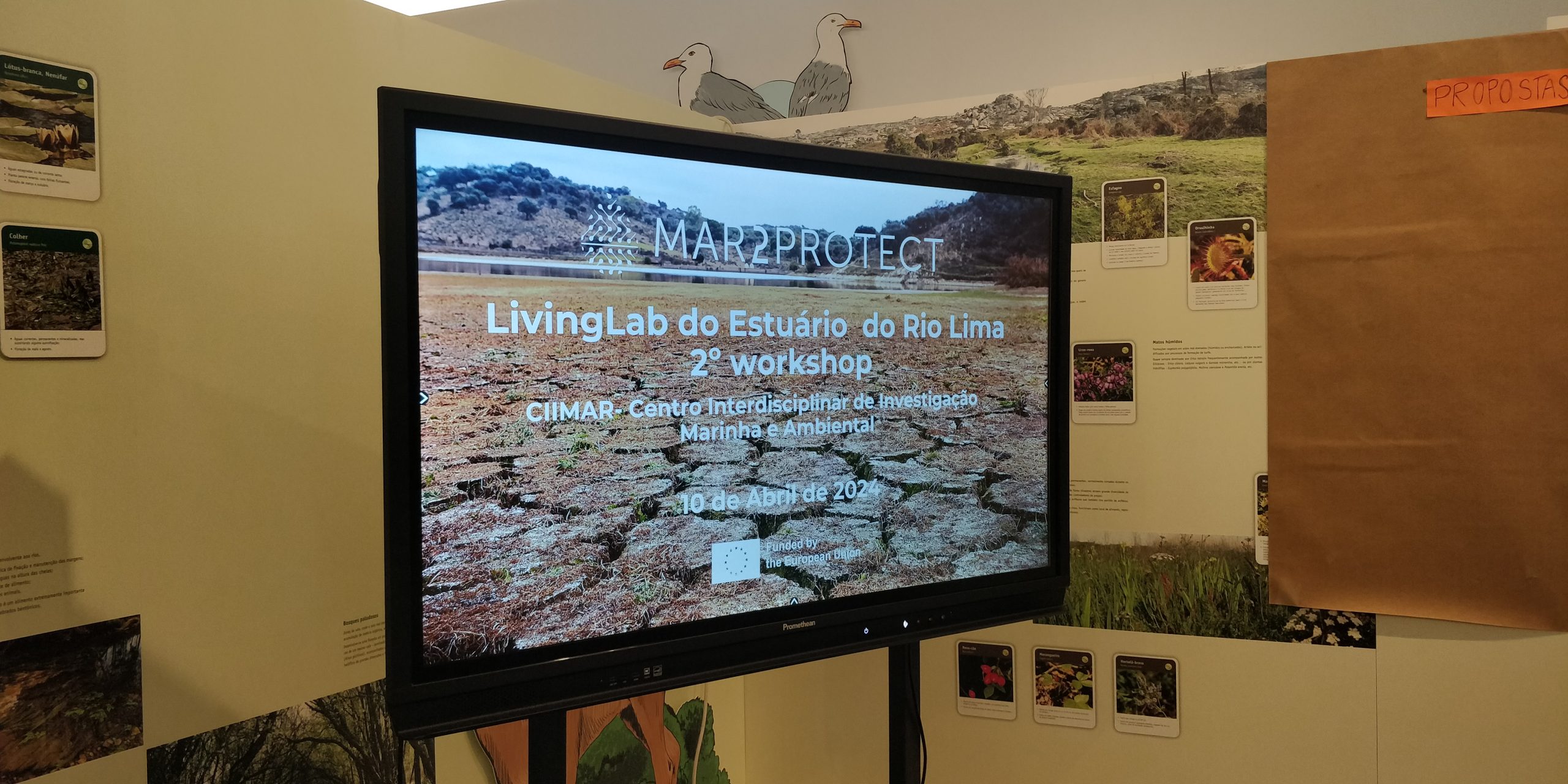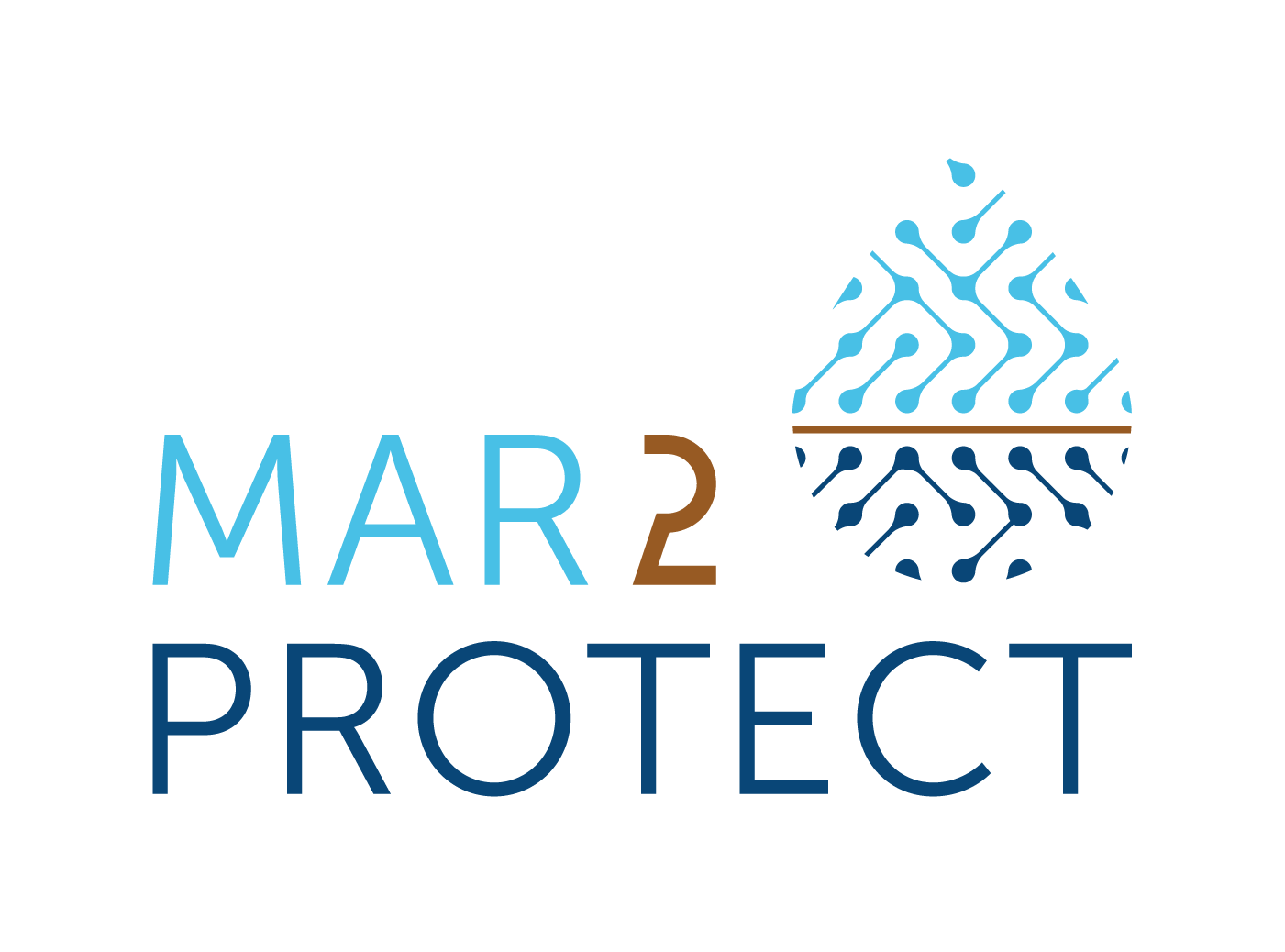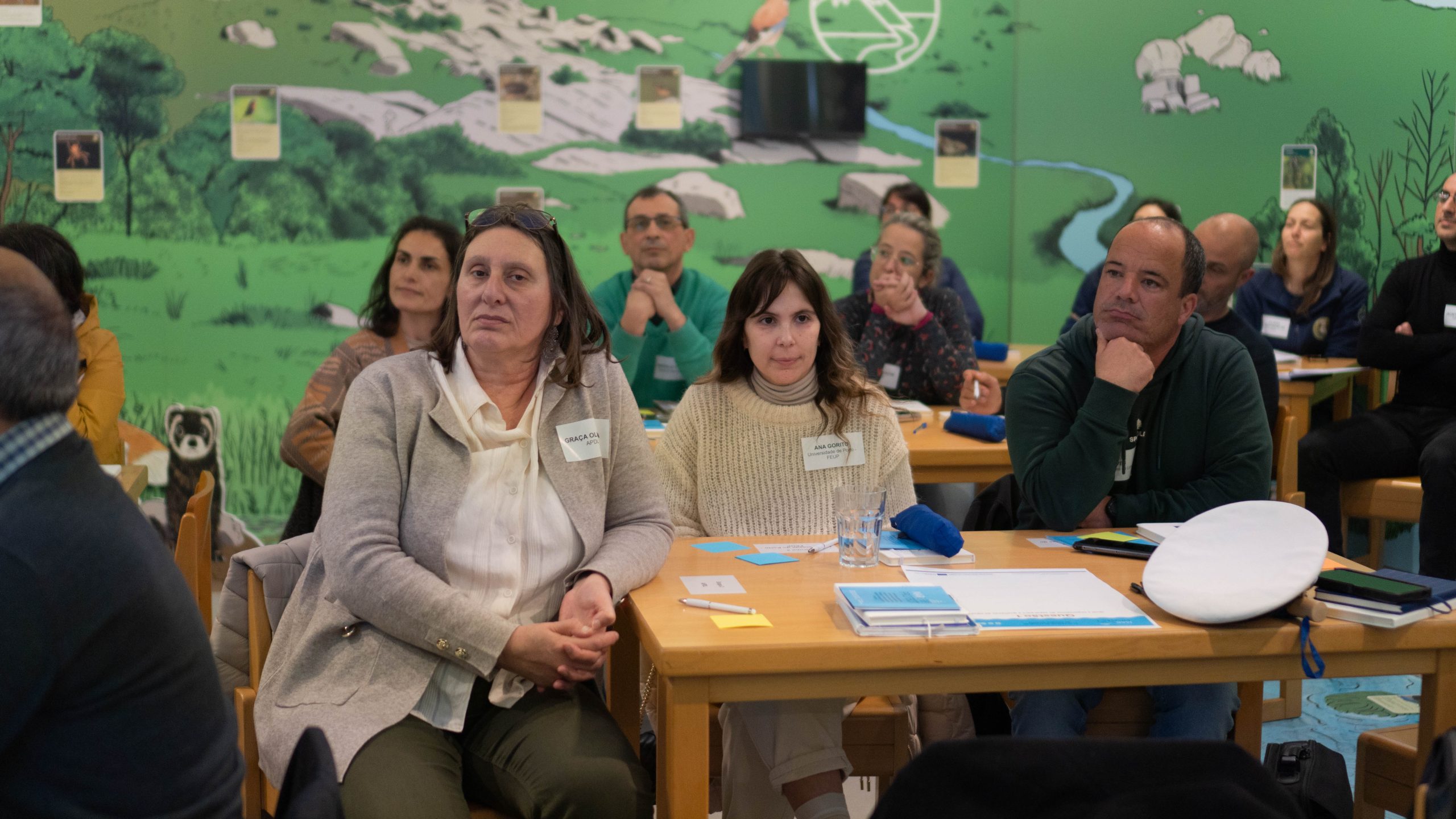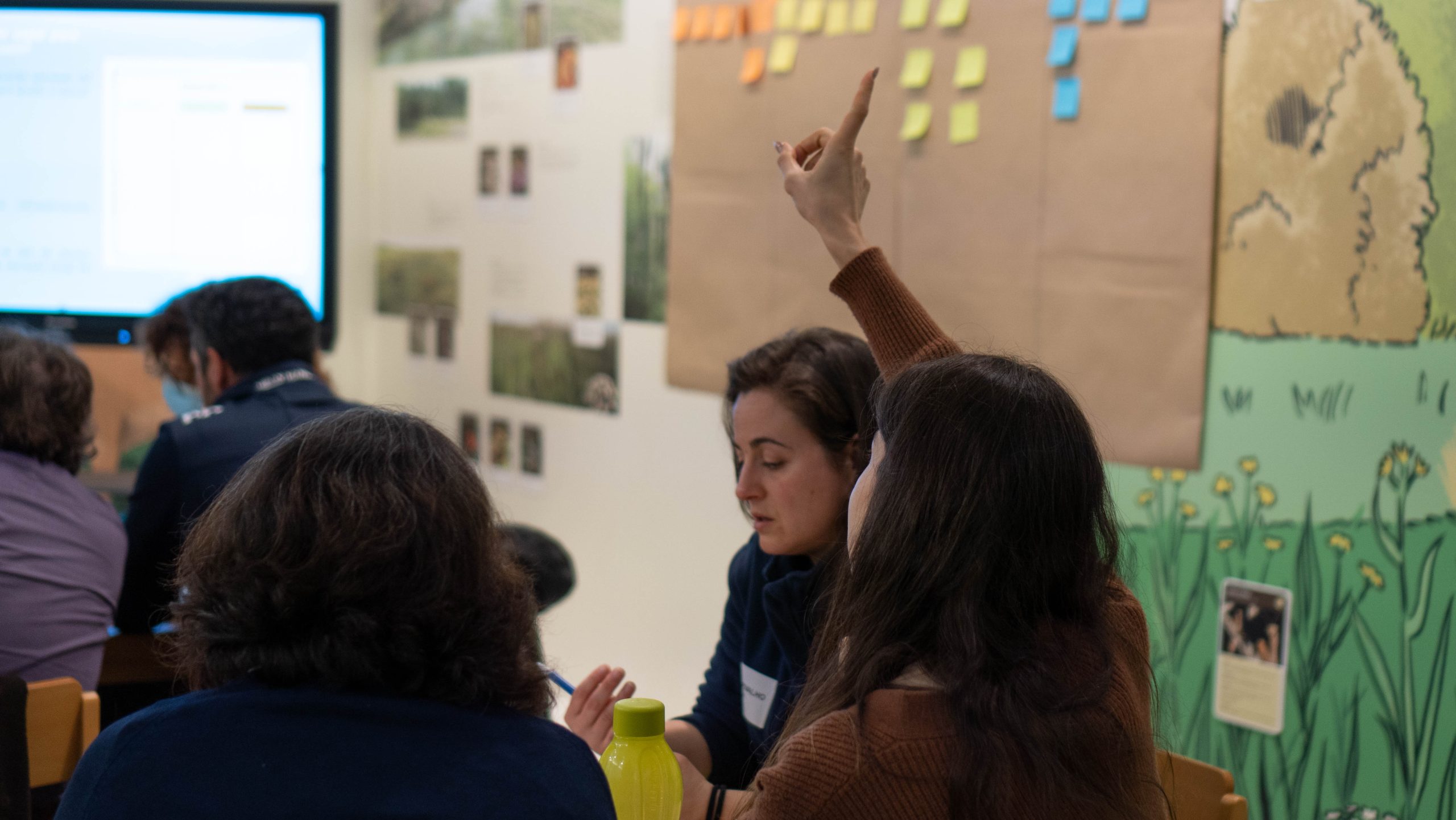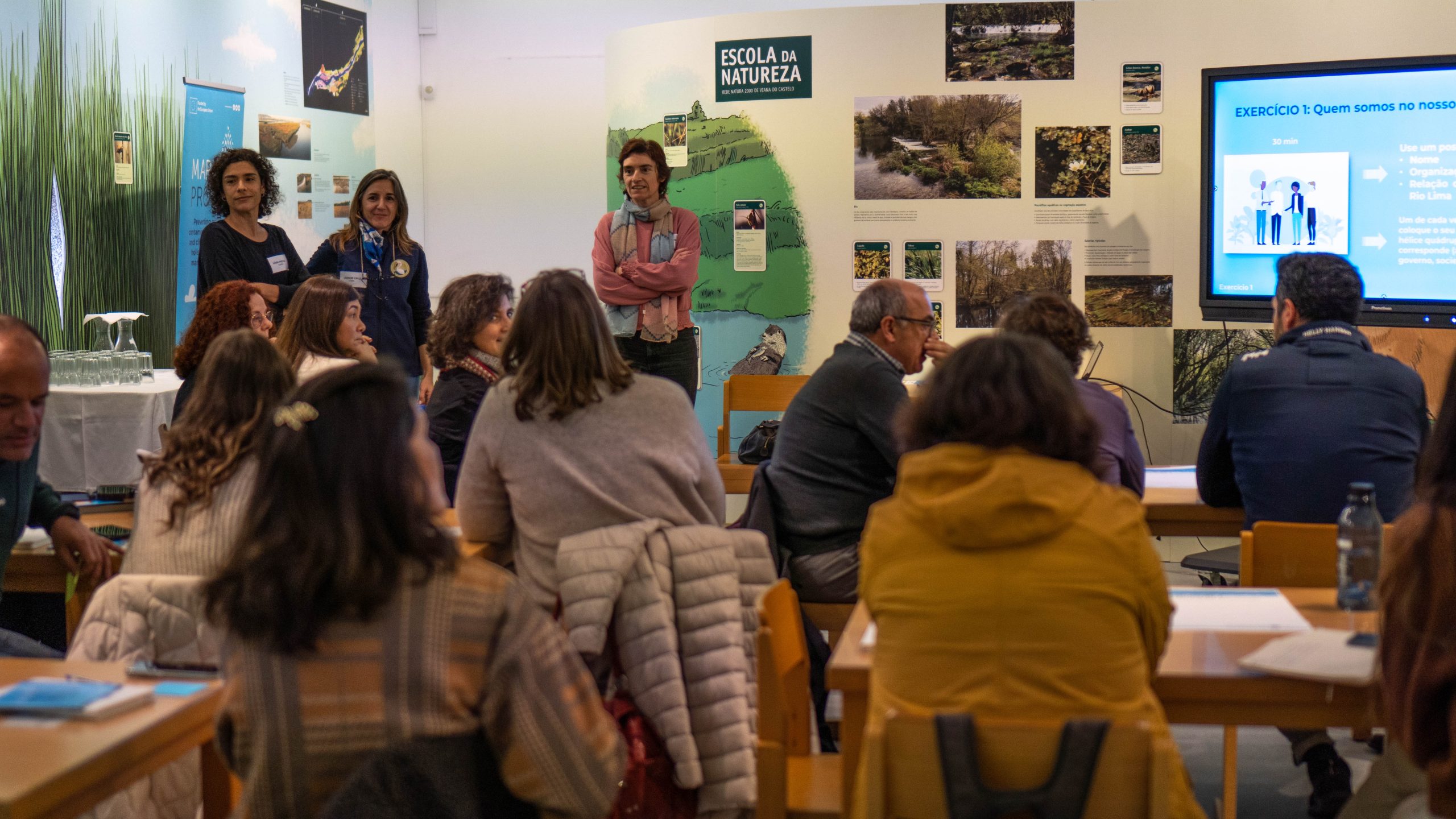
by admin | Apr 30, 2024 | Demosite 7, events, News
MAR2PROTECT, in collaboration with Centro Interdisciplinar De Investigacao Marinha e Ambiental (CIIMAR) and CMIA de Viana do Castelo, is thrilled to announce the successful launch of the second meeting of its LivingLab initiative at the Lima River estuary. The event took place on April 16, 2024, in Viana do Castelo, Portugal.
The workshop witnessed the enthusiastic participation of stakeholders from diverse sectors, including the public sector, academia, industry, and civil society. Employing a co-creative methodology, attendees engaged in fruitful discussions, identifying optimal strategies for local societal involvement, highlighting potential challenges within the case study, and fostering community awareness to prevent water contamination. Their invaluable feedback not only underscored the effectiveness of ongoing efforts but also illuminated the path forward for the LivingLab.
This LivingLab represents the inaugural venture of its kind in Portugal, marking a significant milestone in MAR2PROTECT’s broader mission. As part of a larger network spanning seven demo-sites across Africa and Europe, including South Africa, Tunisia, Netherlands, Italy, Spain, and now two locations in Portugal, this LivingLab embodies meticulous site selection based on past successes, climatic conditions, water sources, pollution types, Managed Aquifer Recharge schemes, and socio-political context.
The implementation of this LivingLab (and all other MAR2PROTECT LivingLabs) is supported by the methodology and detailed guidance provided by our partners from IHE Delft Institute for Water Education.
MAR2PROTECT seeks to save the world’s groundwater from contamination through an innovative and holistic approach. This research project brings together two main strategies, the M-AI-R tool and LivingLabs, to create new approaches for safeguarding groundwater as it becomes more vulnerable in the face of climate change.
The project kicked off in December 2022 and will run for four years. It is funded by the Horizon Europe programme with a total cost of €4.143.681,25. MAR2PROTECT will usher in a new generation of Managed Aquifer Recharge (MAR) that engages stakeholders and enhances both groundwater quality and quantity.
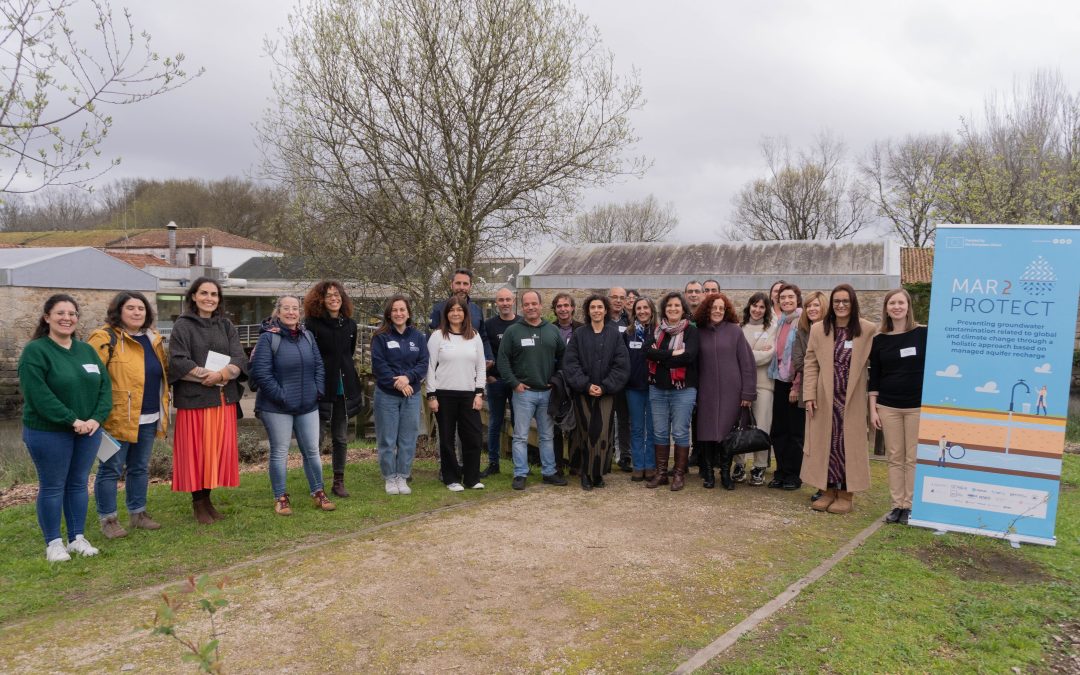
by admin | Feb 26, 2024 | Demosite 7, events, News
MAR2PROTECT, through its partner Centro Interdisciplinar De Investigacao Marinha e Ambiental (CIIMAR), and with the collaboration of CMIA de Viana do Castelo as a facilitator, held a successful workshop on February 21 to launch the project’s LivingLab in Viana do Castelo, Portugal, where the Lima River estuary is located.
Members of different sectors such as the public sector, academia, industry, and civil society attended the day. Using a co-creative approach, the stakeholders helped to identify the best ways for local societal engagement, detect possible challenges in the case study, raise community awareness prevent water contamination and provided feedback on the effectiveness and next steps.
This LivingLab is the first to be launched of the two located in Portugal. In total, there are seven demo-sites located across Africa and Europe; South Africa, Tunisia, Netherlands, Italy and Spain are each home to one demo-site, while Portugal is home to two. These sites have been carefully chosen for their success in previous projects as well as the climatic conditions, water sources, types of pollution, Managed Aquifer Recharge schemes and socio-political contexts.
MAR2PROTECT seeks to save the world’s groundwater from contamination through an innovative and holistic approach. This research project brings together two main strategies, the M-AI-R tool and LivingLabs, to create new approaches for safeguarding groundwater as it becomes more vulnerable in the face of climate change.
The project kicked off in December 2022 and will run for four years. It is funded by the Horizon Europe programme with a total cost of €4.143.681,25. MAR2PROTECT will usher in a new generation of Managed Aquifer Recharge (MAR) that engages stakeholders and enhances both groundwater quality and quantity.
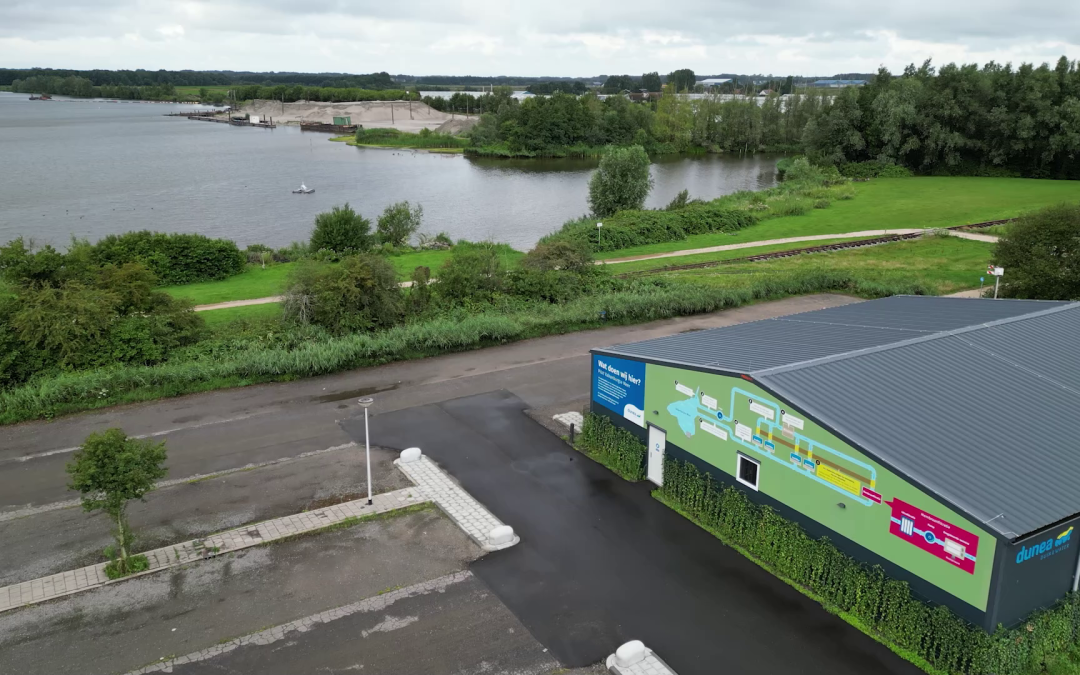
by admin | Nov 2, 2023 | Demosite 1, Demosite 2, Demosite 3, Demosite 4, Demosite 5, Demosite 6, Demosite 7, News
MAR2PROTECT will help save the world’s groundwater from contamination through an innovative and holistic approach. This research project brings together two main strategies, the M-AI-R tool and LivingLabs, to create new approaches for safeguarding groundwater as it becomes more vulnerable in the face of climate change.
The tool M-AI-R will be placed in at-risk aquifers and receive real-time information from sensors, aiming at quantifying global change/climate change impacts on groundwater. At the same time, LivingLabs are being set up in each aquifer region, creating a space for interactions in which stakeholders are at the center of the innovation process.
There are seven demo-sites located across Africa and Europe; South Africa, Tunisia, Netherlands, and Spain are each home to one demo-site, while Portugal is home to two. These sites have been carefully chosen by their success in previous projects as well as the climatic conditions, water sources, types of pollution, Managed Aquifer Recharge schemes and socio-political contexts.
The project kicked off in December of 2022 and will run for four years. It is funded by the Horizon Europe programme with a total cost of €4.143.681,25. MAR2PROTECT will usher in a new generation of Managed Aquifer Recharge (MAR) that engages stakeholders and enhances both groundwater quality and quantity.
Innovation experiments with stakeholders in real-life settings
A tailored methodology is currently being deployed in each demo-site to establish the LivingsLabs. These LivingLabs bring together stakeholders from citizens and civil society organizations to scientists, public sector agencies, and industry leaders. The LivingLabs consist of a series of workshops that allow stakeholders to provide feedback on the effectiveness, suitability and replication potential of the implemented technologies. Using this co-creative approach, stakeholders will also help the project identify the best ways for local societal engagement such as raising community awareness and preventing water contamination, beyond the mere implementation of the project technologies. In this way, MAR2PROTECT will carry out cutting-edge research and trigger changes in a real-life context. The first LivingLab will be launched in the Emilia-Romagna region in Italy on 5 December 2023.
A multidisciplinary consortium
MAR2PROTECT brings together 11 partners from 7 countries to form a diverse and dynamic consortium. coordinated by FCT NOVA. It involves 7 Research and Technology Organisations (CIIMAR, CETAQUA, AQUATEC, IHE, IT, ISSBAT and SUWI), 3 universities (FCT NOVA, UNIBO and KTU), and 1 technology transfer entity (FEUGA). It also includes 3 large water utilities (AdTA, Dunea and HERA), 1 university (FHNW) and a public administration (City of Cape Town) as associated partners.
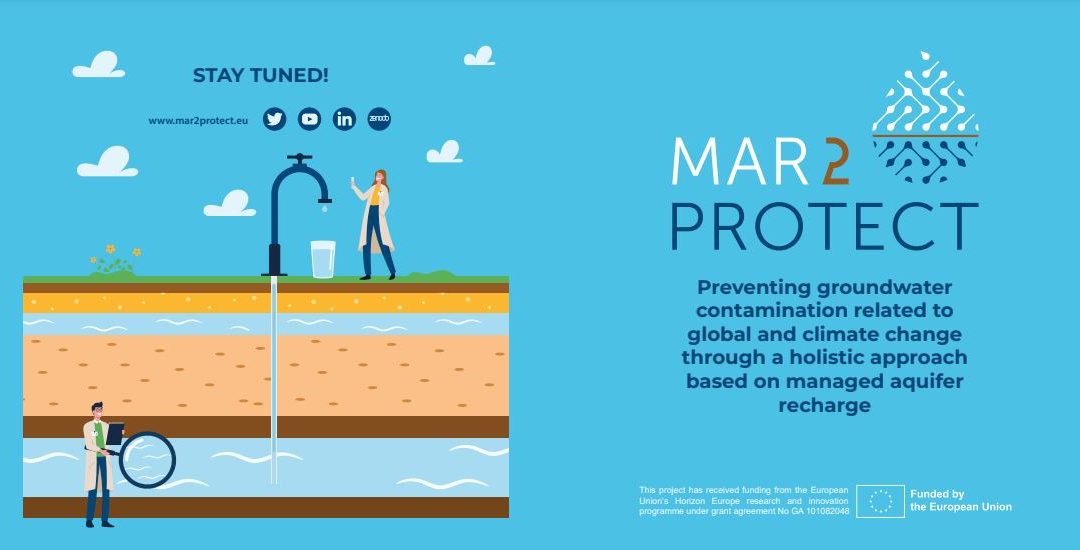
by admin | Mar 20, 2023 | Demosite 1, Demosite 2, Demosite 3, Demosite 4, Demosite 5, Demosite 6, Demosite 7, News
We are glad to present our first leaflet which includes all project key information
Let’s take a look here
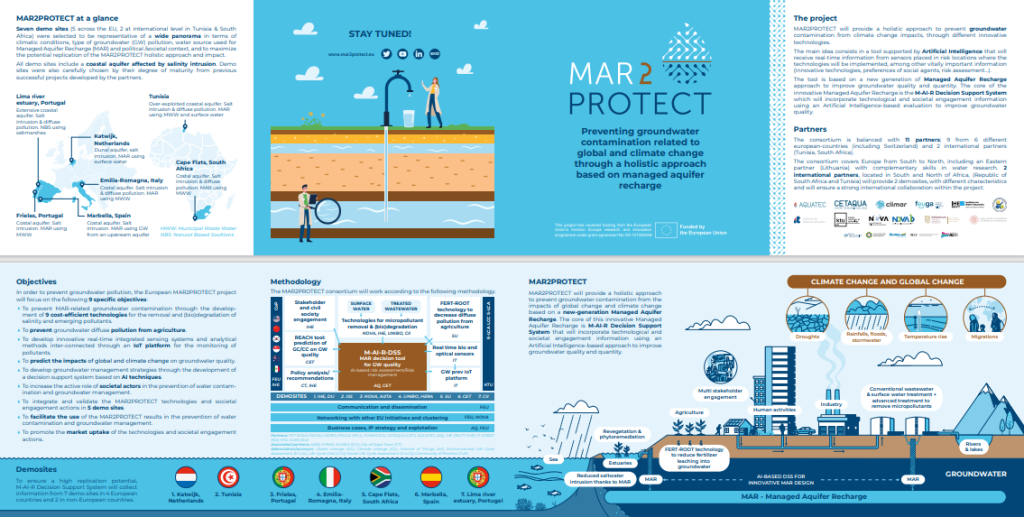
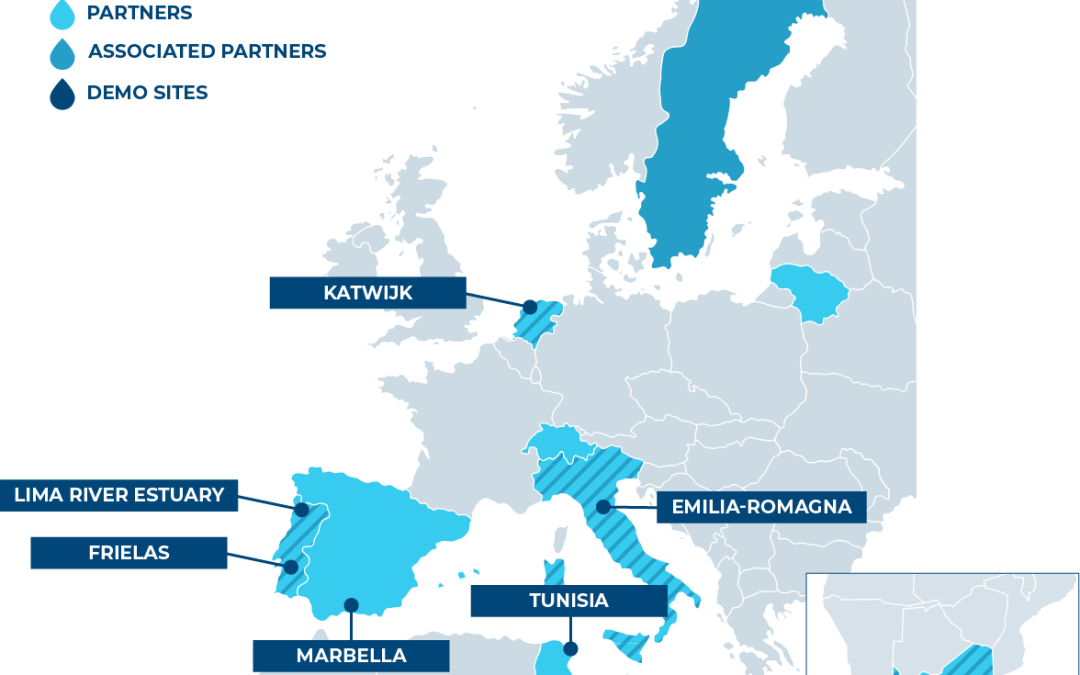
by admin | Oct 11, 2022 | Demosite 1, Demosite 2, Demosite 3, Demosite 4, Demosite 5, Demosite 6, Demosite 7, News
To ensure a high replication potential, M-AI-R Decision Support System will collect information from 7 demo sites in 4 European countries (Portugal, Italy, Spain, Netherlands) and 2 in non-European countries (Tunisia, South Africa).
These demo sites were selected to be the representative of a wide panorama in terms of climatic conditions, type of groundwater pollution, water sources used for Managed Aquifer Recharge, political/societal context, and to maximize the potential replication of the MAR2PROTECT holistic approach and impact. All demo sites include a coastal aquifer affected by salinity intrusion. Demo sites were carefully chosen by their degree of maturity from previous successful projects developed by the partners.
The list of demo sites includes: Katwijk, Tunisia, Frielas, Emilia-Romagna, Cape Flats, Marbella and Lima River Estuary
You can learn all things related to the demo site on their specific pages in our section for Demo Sites on our web.

